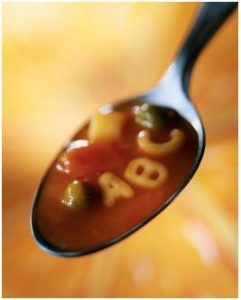CPA, PA, CMA, CFE, Alphabet soup!
You’re interested in accounting but which field?
When you say accountant, the first thing that pops into the head of a lot of people is, “Oh, yeah, a CPA.” On the other hand when you say bookkeeper to some people, they interpret that to mean accountant. We hear these terms used interchangeably and part of the problem is that even those of us who are members of the profession don’t necessarily agree on the distinction between them.
I think of it as a scaled thing. NO! I don’t mean as in reptile. I mean as on a scale of A to G. I purposely avoided using 1 to 10 because, for instance, there are highly regarded professional accountants who are not CPA’s , and I don’t want to imply quality. Think of A to G as in a musical scale. A is no more important than E and they all work together to make beautiful music.
Let’s start with the designation of CPA (Certified Public Accountant). These guys (used strictly in a non-gender specific way) have met stringent individual state mandated requirements for education, usually requiring 150 semester hours including a sizable number of hours in accounting, business law, and other business classes. In addition, they have passed the uniform national CPA exam and met other licensure requirements that vary by state. Some states offer the designation of PA (professional accountant) that has lower requirements, but this designation is losing favor. Certainly not all accountants are CPA’s. In most states only CPA’s may offer some types of accounting services to the public. You can learn more about being a CPA at www.aicpa.org.
Not all accountants offer services to the public. Corporate accountants may have earned the designation of CPA, but it is not necessary. Often accountants that work for companies will obtain the designation of (CMA) certified management accountant. This designation does not require a certain number of college semester hours in accounting and is more accessible to people who may have entered the profession through experience rather than formal education. It does require a bachelor’s degree and experience working as an accountant as well as the successful completion of a rigorous test. Unlike the CPA, the CMA is an international designation. You may learn more about being a CMA at www.imanet.org.
 In addition, those interested in forensic accounting may wish to become a CFE (Certified Fraud Examiner). Like the CMA, this credential does not require a formal degree in accounting. Often those with backgrounds in information technology, law enforcement, or criminology are drawn to this area. For more information about the CFE, go to www.acfe.com.
In addition, those interested in forensic accounting may wish to become a CFE (Certified Fraud Examiner). Like the CMA, this credential does not require a formal degree in accounting. Often those with backgrounds in information technology, law enforcement, or criminology are drawn to this area. For more information about the CFE, go to www.acfe.com.
Accountant and bookkeeper often do not denote any specific degree of formal education and may refer to individuals whose responsibilities range from data entry in a computerized accounting system to very highly skilled individuals who are responsible for the accounting and finance function of large companies. Normally those of us in the profession use bookkeeper to mean someone with limited formal accounting education whose duties are limited to recording and classifying accounting information. We normally reserve the term accountant to mean someone with a degree in accounting. Sometimes these individuals have graduate degrees in accounting, but have never sought to formalize their credentials with certification.
%CODE1ACCOUNTING%





